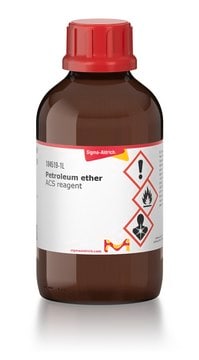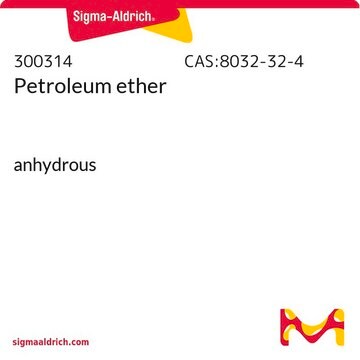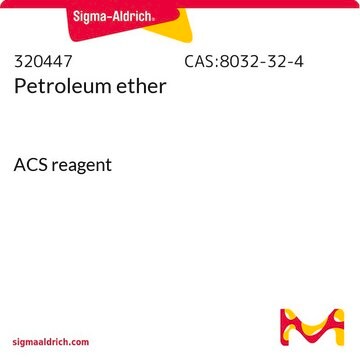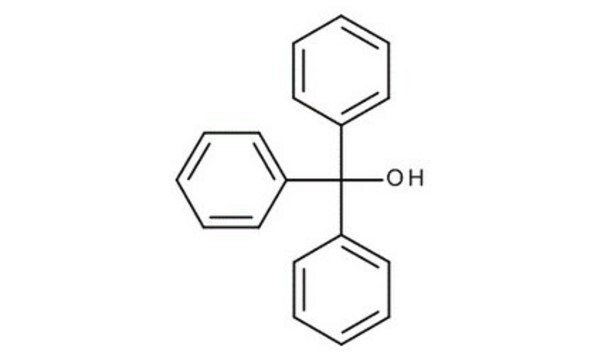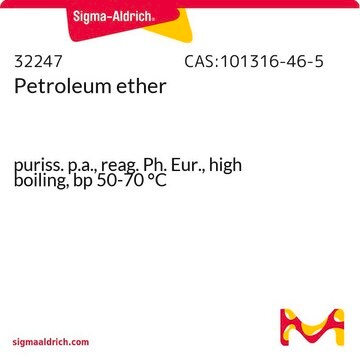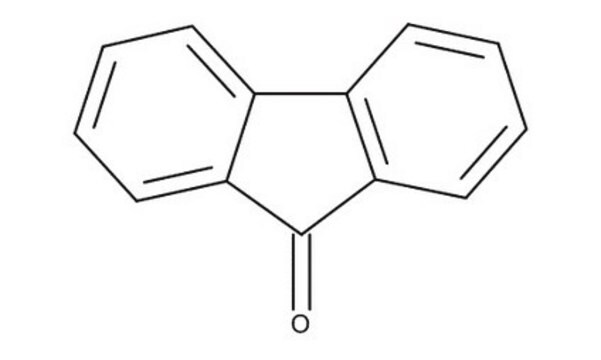Recommended Products
grade
ACS reagent
vapor density
2.5 (vs air)
vapor pressure
25.8 psi ( 55 °C)
7.99 psi ( 20 °C)
form
liquid
autoignition temp.
475 °F
expl. lim.
8 %
impurities
acidity, passes test
evapn. residue
≤0.001%
color
APHA: ≤10
refractive index
n20/D 1.363 (lit.)
bp
30-60 °C (lit.)
35-60 °C
density
0.64 g/mL at 25 °C (lit.)
InChI
1S/C7H7.BrH.Mg/c1-7-5-3-2-4-6-7;;/h3-6H,1H3;1H;/q;;+1/p-1
InChI key
ZRJNGFJIBZKXTP-UHFFFAOYSA-M
Looking for similar products? Visit Product Comparison Guide
General description
Application
- Soluble compounds from the mushroom samples.
- Carotenoids from the marine Thraustochytrium sp.ONC-T18.
signalword
Danger
hcodes
Hazard Classifications
Aquatic Chronic 2 - Asp. Tox. 1 - Flam. Liq. 1 - Skin Irrit. 2 - STOT SE 3
target_organs
Central nervous system
Storage Class
3 - Flammable liquids
wgk_germany
WGK 2
flash_point_f
-56.2 °F
flash_point_c
-49 °C
Certificates of Analysis (COA)
Search for Certificates of Analysis (COA) by entering the products Lot/Batch Number. Lot and Batch Numbers can be found on a product’s label following the words ‘Lot’ or ‘Batch’.
Already Own This Product?
Find documentation for the products that you have recently purchased in the Document Library.
Customers Also Viewed
Our team of scientists has experience in all areas of research including Life Science, Material Science, Chemical Synthesis, Chromatography, Analytical and many others.
Contact Technical Service